- Home
- Brian Lumley
The Source Page 6
The Source Read online
Page 6
And the thought came to the British agent that something, some vast force, had attempted to bring about a certain homogeneity here, had tried to make every different thing into one similar thing. Or had tried to deform everything beyond recognition. It was not so much that the various materials had been fused by heat and fire, rather that they seemed to have been folded-in, like the ingredients of dough, or different coloured plasticines in some monstrous child’s hands.
“It gets worse,” said Khuv quietly, leading the way lower still. “Those strange tunnels there were not ‘cut’ through the magmass—that’s what Viktor Luchov calls this jumble of matter, incidentally, a ‘magmass’—they were eaten into it by energy shearing off from the blow-back! We can only guess at the extent of the damage if the installation had been built on the surface.”
The stairs descended to a veritable bed of magmass, only levelling out when they reached a vertical wall of unbroken rock like the face of a cliff. Here the timbers underfoot formed a walkway which turned to the right through an angle of ninety degrees and ran parallel with the foot of the looming wall of rock. Under the boards the floor was chaotically humped and anomalous, where different materials had so flowed into each other as to become unrecognizable in their original forms. And through all the congealed mass of this earthly and yet unfamiliar material ran those irregular wormhole energy channels, very like the indiscriminate burrows of rock-boring crustaceans in the sea, but on a gigantic scale.
“‘Eaten,’” Jazz pondered over the word. “You said these holes were ‘eaten’ into this stuff—but by what?”
“Rather, shall we say, ‘converted’?” Khuv glanced at him. “Perhaps that paints a truer picture, to say that the material was converted into energy. But if you’ll be patient I can show you a far better example. We are going to the place where the pile used to be. That, too, was eaten—or converted, if you prefer.”
“Pile?” For the moment Khuv’s meaning didn’t register in Jazz’s confused thoughts.
“The atomic pile which was the Projekt’s main source of power,” the Russian explained. “The backlash ate it—utterly. Yes, and then it seems it ate itself!”
Jazz might have questioned that statement, too, but now looming on the left of the walkway a huge, perfectly circular hole appeared in the face of the black wall of rock. Light issued from this tunnel where it angled steeply downward, and Jazz didn’t need telling that this was a continuation of the shaft seen in the upper level, which once—and only once—had carried a fearsome beam of energy to the outside world.
The walkway turned left into the mouth of the shaft, became a stairway once again. Blinding white light was painful after the comparative gloom of the two levels through which the party had descended. Ahead and below, the far end of the shaft was a white disk of glaring brilliance, with its lower rim blacked out by the walkway’s platform. Jazz shielded his eyes, saw a young Russian soldier in uniform leaning against the curved wall. The man at once came upright, snapped to attention, slapped the stock of his Kalashnikov rifle in salute.
“At ease,” said Khuv. “We need some glasses.”
The soldier leaned his rifle against the wall, groped in a satchel slung over his shoulder. He produced three pairs of tinted cellophane spectacles with cardboard rims, like the glasses Jazz had once been issued to view a 3-D film.
“For the light,” Khuv explained, though there was hardly any need. “It can be blinding until you’re used to it.” He put on his glasses.
Jazz did the same, followed Khuv down the stairway built through the glass-smooth cylindrical shaft. From behind them came a clatter as the soldier’s rifle toppled over when he went to pick it up, then Karl Vyotsky’s husky, threatening voice hissing: “Idiot! Dolt! Would you like to do a month of nights?”
“No, sir!” the young soldier gasped. “I’m sorry, sir. It slipped.”
“You damn well should be sorry!” Vyotsky rasped. “And not only for the rifle. What the hell are you here for anyway? To check passes for security, that’s what! Do you know that man in front, and me, and the man with us?”
“Oh, yes, sir!” the young soldier quavered. “The man in front is Comrade Major Khuv, sir, and you too are an officer of the KGB. The other man is … is … a friend of yours, sir!”
“Clown!” Vyotsky hissed. “He is not my friend. Nor yours. Nor anyone’s in the whole damned place!”
“Sir, I—”
“Now hold that rifle out in front of you,” Vyotsky snapped. “Arm’s length, finger through the trigger-guard, finger under the backsight. What the hell … ? Arm’s length, I said. Now hold it, and count to two hundred, slowly! Then get back to attention. And if I ever catch you slacking off again, I’ll feed you into that white hell down there dick first, got it?”
“Yes, sir!”
Following Khuv toward the white glare at the end of the shaft, Jazz murmured sourly: “A disciplinarian, our Karl.”
Khuv glanced back, shook his head. “Not really. Discipline isn’t his strong point. But sadism is. I hate to admit it, but it does have its uses …”
At the end of the shaft there was a railed landing where the stairs levelled out and turned to the left. Khuv paused on the landing with Jazz alongside. Waiting for Vyotsky, they gazed down on a fantastic scene.
It was like being in a cavern, but there was no way it could be mistaken for any ordinary sort of cave. Instead, Jazz saw that the rock had been hollowed out in the shape of a perfect sphere, a giant bubble in the base of the mountain—but a bubble at least one hundred and twenty feet in diameter! The curving, shiny-black wall all around was glass-smooth except for the wormholes which riddled it everywhere, even in the domed ceiling. The mouth of the shaft where Jazz and Khuv stood pointed downward at ninety degrees directly at the centre of the space, which also happened to be the source of the light. And that was the most fantastic thing of all.
For that central area was a ball of light some thirty feet across, and it was apparently suspended there, mid-way between the domed ceiling and the upward curving floor. A sphere of brilliance hanging motionless within a sphere of air, and the whole trick neatly buried under the foot of a mountain!
Narrowing his eyes against the glare, which was powerful even through the tinted lenses of his spectacles, Jazz slowly became aware that the spherical cavern contained other things. A spidery web of scaffolding had been built half way up the wall and all around the central blaze. The scaffolding supported a platform of timbers which circled the weird light source, reminding Jazz vaguely of the ring system round Saturn. Leading inwards from the ring, a walkway proceeded right to the edge of the sphere of light.
Externally, backed up against the black, wormhole-riddled walls—evenly spaced around the perimeter and massively supported on a framework of stanchions—three twin-mounted Katushev cannons pointed their muzzles point-blank at the blinding centre. Crews were in position, their sights aligned on the sphere, their faces white and alien-looking with headset antennae and insect goggle-eyes trained on the dazzling target.
Between the guns and the sphere stood a ten-foot high electrified fence, with a gate where the timber walkway spanned the gap between the Saturn rings and the centre. There was some motion down there, nervous and jumpy, but not much; the stench of fear was so thick in the supposedly conditioned air that Jazz could almost feel it like slime on his skin.
He gripped the wooden rail, let the entire scene print itself indelibly on his brain, said: “What in the name of all that’s … ?” He turned his head to stare at Khuv. “I saw the arrival of those guns that night you caught me. The electrified fence, too. I thought they were meant to defend Perchorsk against attack from the outside, which struck me as making no sense. But from the inside? Christ, that doesn’t make much sense either! I mean, what is that thing? And why are those men down there so desperately afraid of it?”
And suddenly, without any prompting, he knew the answer before it came. Not all of the answer but enough. Suddenly everyt
hing fitted: all he’d seen, and all Khuv had told him. And especially the flying monstrosity that the American fighters had burned to hell and sent crashing to earth in a ball of flame from high over the west coast of the Hudson Bay. And speaking of flames, wasn’t that a four-man flame-thrower squad down there on the Saturn’s-rings platform? Yes, it was.
Vyotsky had come up quietly behind Jazz and Khuv where they stood at the rail. He put a huge hand on Jazz’s shoulder, causing him to start. “As to what it is, British,” he said, “it’s some sort of gate or door. And as such we’re not frightened of it.” But Jazz noted how for once Vyotsky’s tone was muted, perhaps even a little awed.
“Karl is right,” said Khuv. “No, we’re not frightened of the Gate itself—but I defy any sane person not to fear the things that sometimes come through it!”
Chapter Four
The Gate To … ?
THEY STARTED DOWN THE FINAL FLIGHT OF WOODEN STAIRS to the Saturn’s rings of spiderweb platform, then moved round the central sphere until they approached the walkway leading to its coldly incandescent heart. Ten feet away from the gate in the electric fence Khuv halted, turned to Jazz and said: “Well, what do you make of it?” He could only be talking about the glaring yet enigmatic globe which stood on the other side of the gate, maybe seven paces away. It was quite motionless, it made no sound, and yet it was menacing.
“You said that this was where the atomic pile stood,” Jazz answered. “What, in mid-air? No, OK, I’m being facetious. So what you mean is that after the blow-back everything within sixty-five feet or so of the centre of that … that—whatever it is—was vaporized out of existence, right?”
“That would have been my explanation, too,” Khuv nodded, “but incorrectly. As I’ve already pointed out, conversion is the word. According to Viktor Luchov, the energy of the trapped beam was attracted by the latent energy—or the energy in action—in the pile. You could compare it to the way a nail is drawn to a magnet. In the final fusing there was no explosion. Perhaps there was an implosion, I don’t know any more about that than Luchov himself. But the matter which had formed the floor of this place, and the pile itself along with its fuel—yes, and all the machinery, too, which had filled this area—all of these things, outwards from the centre to the spherical wall which now you see, were eaten, transformed, converted. Men, too. Seventeen nuclear physicists and technicians died instantly, leaving no trace.”
Jazz was impressed, if not by Khuv’s telling of the story, certainly by its content. “And radiation?” he said. “There must have been a massive release of—”
Khuv shook his head, bringing Jazz to a halt. “In relation to what was available, there was very little in the way of escaped radiation. The tips of those wormholes, fifteen to twenty feet into the rock, some of those were hotspots. We did what we could, then sealed them off. In the levels above there are dangerous places still, but again mainly sealed off. And in any case those levels are no longer in use and will never be used again. You have seen something of the magmass, but you have not seen all of it. Metal and plastic and rock were not the only materials which flowed together inseparably in that blast of alien energy, Michael. But rock and metal and plastic do not rot! You understand my meaning, I’m sure …”
Jazz grimaced, said: “How did they … clean the place up? It must have been a nightmare.”
“It still is,” Khuv told him. “That’s why the lighting is muted up there. Acid was used. It was the only way. But it left moulds in the magmass which are utterly hideous to look upon. Pompeii must be something similar, but there at least the figures are still recognizably human. Not elongated or twisted or … reversed.”
Jazz thought about it, enquired no further as to Khuv’s exact meaning.
Vyotsky had been growing restless for some little time. “Do we have to stand here like this?” he suddenly growled. “Why must we make targets of ourselves?”
Jazz’s dislike for the man was intense, amounting to hatred. He’d hated him from the moment he first laid eyes on him, and couldn’t resist jibes whenever the opportunity for such surfaced. Now he sneered at the huge Russian. “You think their fingers are likely to slip?” he nodded in the direction of the crew manning the closest Katushev. “Or maybe they’ve a grudge against you, too, eh?”
“British,” said Vyotsky, taking a threatening pace closer, “I could happily toss you on that fence there and watch you fry! You’ve been advised to mind your mouth. But me?—I hope you go on pushing your luck till you push yourself right over the edge!”
“Calm yourself, Karl,” Khuv told him. “He’s looking for your measure, that’s all.” And to Jazz: “He doesn’t mean that sort of target,” he said. “Or rather he does, but not in the way you think. It’s simply that if anything—anything at all strange—comes out of that ball of light there, those crews have orders to open fire immediately and destroy or try to destroy it. And those orders take absolutely no account of the fact that we happen to be standing here, right in the arc of fire.”
“But if it did happen,” Vyotsky added, “and if what could come through did, then I personally would be glad to stop a bullet!”
Khuv gave a little shiver, said, “Let’s get out of here. Karl is quite right: we are stupid to stand here tempting fate. It has happened five times before, and there’s no guarantee it won’t happen again.”
As they turned away and headed back toward the stairs, Jazz asked, “Do you have it on film? I mean, if it’s a regular occurrence—”
“Not regular,” Khuv corrected him. “Five—shall we call them, ‘emergencies’—in two years can hardly be called frequent. But I take your point. Oh, yes, Michael, we learned our lessons quickly. After the first two encounters we fitted cameras, and now there are also cameras mounted on these guns. They are triggered when the weapons themselves are triggered. What the gunners see, the cameras capture—on film, anyway. As for the thing your side has code-named ‘Pill’: that was the first. Nobody here was ready for it. The second one was smaller, but we weren’t ready for that, either. After that the cameras were put in.”
“Any chance of seeing what we’re talking about?” Jazz might as well go for broke; there was little or no chance of him getting out of here, but still he’d try to discover what he could of this mess if only on the off-chance.
“Certainly,” said Khuv without hesitation. “But if you prefer I can show you something far more interesting than mere films.” There was something about the way he said it that warned Jazz to be careful, but nevertheless he answered:
“Well, by all means, let’s keep me interested.”
Vyotsky’s grimly sardonic chuckle sounding from behind made him wonder if he’d made the right choice …
They went back up through the quiet but disquieting magmass levels to the perimeter, and along it to the secure area which housed the Projekt’s laboratories. Passing through two guarded security doors, they arrived finally at a steel door bearing a stencilled scarlet skull and the stark warning:
CAUTION!
KEEPER AND SECURITY
CLASSIFIED PERSONS
ONLY!
Jazz couldn’t help but think: more melodramatics? But Khuv and Vyotsky had gone very quiet, and perhaps it would be as well if he followed suit. He held his tongue, wondered about the word “keeper.” Keeper of what?
Khuv had a plastic ID tag which he inserted in a slot in the door. The card was accepted, “read” and given back; mechanisms whirred and the door opened with a click. Before pushing it all the way open, Khuv motioned to Vyotsky who turned down the lights in the anteroom. As the lights dimmed Jazz noticed Vyotsky’s face: it was pale and shiny with cold sweat. Also, his Adam’s apple bobbed noticeably. There could be little doubt that the big Russian was both hard and cruel, but it seemed there were some things that could get to him. It also appeared that Jazz was about to meet one of them.
Khuv, though, was cool as ever. Now he pushed the heavy door open and motioned Jazz through it. With some m
isgivings, the British agent stepped inside the dark room. Vyotsky followed close behind him, and Khuv came last, closing the door after him.
The darkness was almost complete: only a series of small red lights the size of flashlight bulbs glowed in the ceiling. Revealed by their dim glow, the rectangular shape of a glass case stood against one wall like a huge tropical fish tank. Khuv’s voice came soft out of the darkness. “Are you ready, Michael?”
“When you are,” Jazz answered. But even as the words left his mouth, he knew he wasn’t here to admire goldfish.
A sharp click sounded and the lights came on.
Something moved in the tank and reared up!
Behind Jazz, Vyotsky made a choking sound. He’d seen this before, had known what was in here, but if anything the knowledge had only served to precipitate his instinctive reaction to it. And now that Jazz saw it he could readily understand why.
The thing was something like the moulds in the magmass which Khuv had not described but Jazz had pictured. It was like that, and yet not like that, for it was alive. Twisting, flowing, it glared out through the thick glass of the tank with eyes that were sheer hell. It was the size of a large dog, but it was not a dog. It wasn’t anything Jazz could have possibly imagined but a composite of most of his worst nightmares. It didn’t stay still long enough for him to even try to decide what it was. And worst of all, it didn’t seem to know itself!
Flattening itself for a moment against the glass of the tank, the thing might have been a leech. Its underside was corrugated and shaped like a huge, elongated sucker. But its four hands, its tail and its head were parts that might readily fit on a giant rat! That was how it looked—for a split-second. Then—

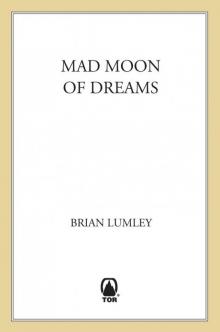 Mad Moon of Dreams
Mad Moon of Dreams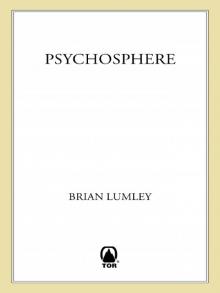 Psychosphere
Psychosphere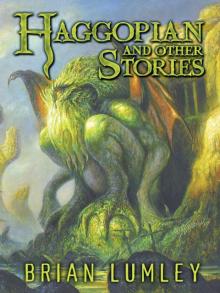 Haggopian and Other Stories
Haggopian and Other Stories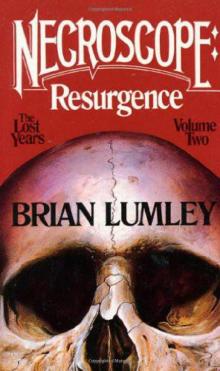 Resurgence_The Lost Years_Volume Two
Resurgence_The Lost Years_Volume Two Necroscope: Harry and the Pirates: And Other Tales From the Lost Years
Necroscope: Harry and the Pirates: And Other Tales From the Lost Years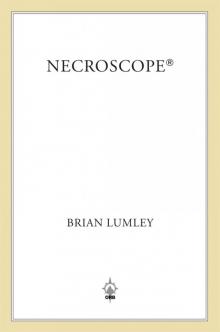 Necroscope®
Necroscope® Dreamlands 5: Questers for Kuranes: Two Tales of Hero and Eldin
Dreamlands 5: Questers for Kuranes: Two Tales of Hero and Eldin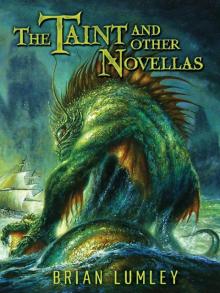 The Taint and Other Novellas: Best Mythos Tales Volume 1
The Taint and Other Novellas: Best Mythos Tales Volume 1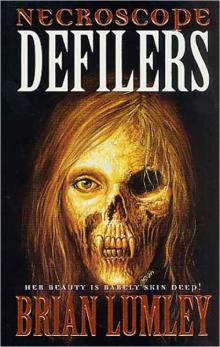 Necroscope: Defilers
Necroscope: Defilers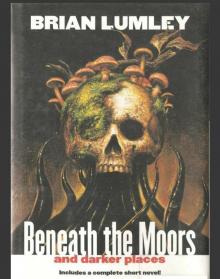 Beneath the Moors and Darker Places
Beneath the Moors and Darker Places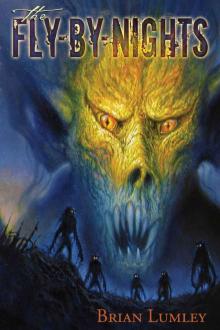 The Fly-By-Nights
The Fly-By-Nights Khai of Khem
Khai of Khem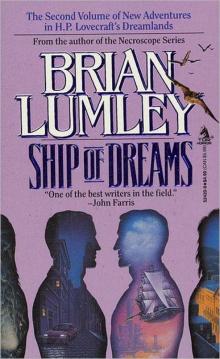 Ship of Dreams
Ship of Dreams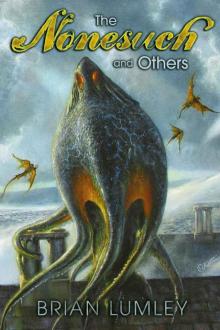 The Nonesuch and Others
The Nonesuch and Others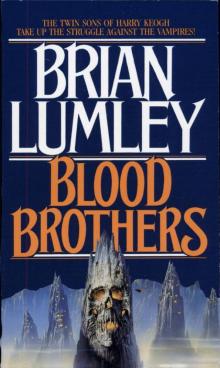 Blood Brothers
Blood Brothers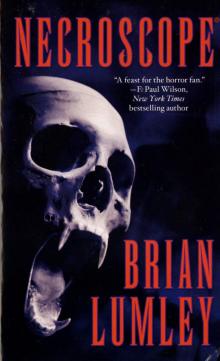 Necroscope
Necroscope The Burrowers Beneath
The Burrowers Beneath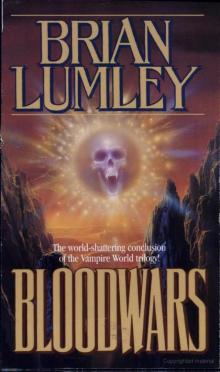 Bloodwars
Bloodwars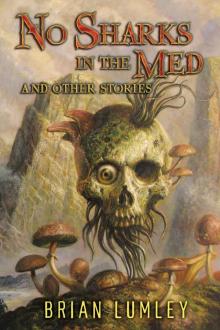 No Sharks in the Med and Other Stories
No Sharks in the Med and Other Stories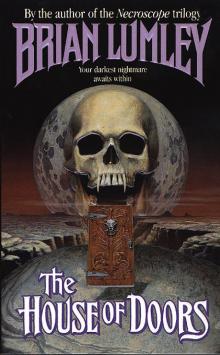 The House of Doors - 01
The House of Doors - 01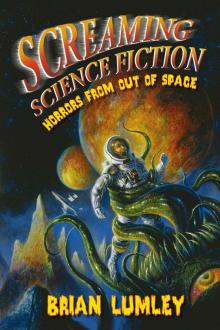 Screaming Science Fiction
Screaming Science Fiction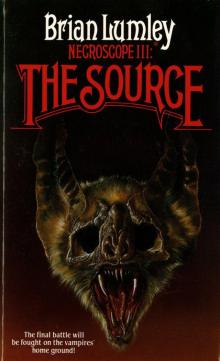 Necroscope III: The Source
Necroscope III: The Source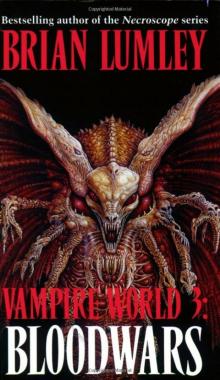 Vampire World I: Blood Brothers
Vampire World I: Blood Brothers Iced on Aran
Iced on Aran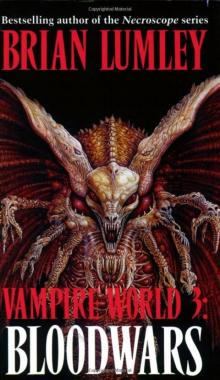 Necroscope: Invaders
Necroscope: Invaders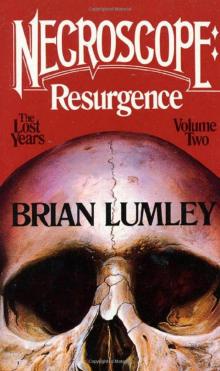 Necroscope: The Lost Years
Necroscope: The Lost Years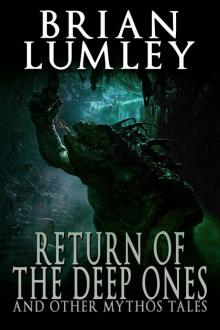 Return of the Deep Ones: And Other Mythos Tales
Return of the Deep Ones: And Other Mythos Tales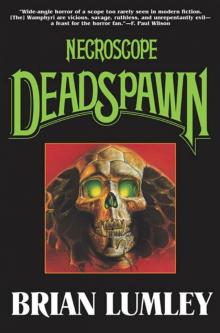 Necroscope V: Deadspawn
Necroscope V: Deadspawn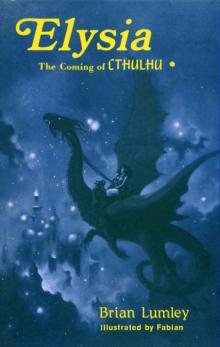 Titus Crow, Volume 3: In the Moons of Borea, Elysia
Titus Crow, Volume 3: In the Moons of Borea, Elysia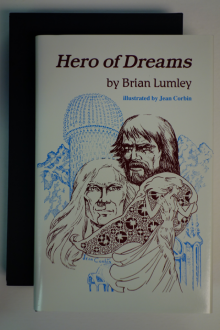 Hero of Dreams
Hero of Dreams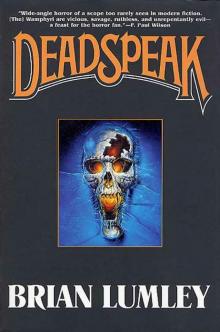 Necroscope IV: Deadspeak
Necroscope IV: Deadspeak The Last Aerie
The Last Aerie The Second Wish and Other Exhalations
The Second Wish and Other Exhalations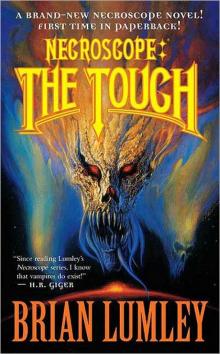 Necroscope: The Touch
Necroscope: The Touch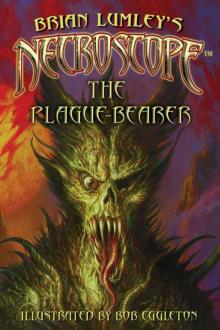 Necroscope: The Plague-Bearer
Necroscope: The Plague-Bearer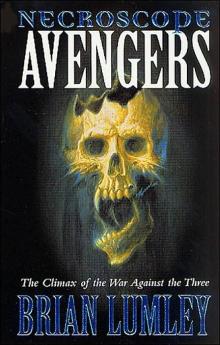 Necroscope: Avengers
Necroscope: Avengers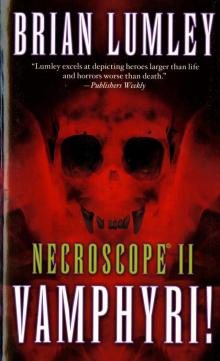 Necroscope II: Wamphyri
Necroscope II: Wamphyri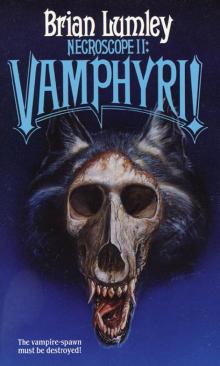 Necroscope II_Vamphyri!
Necroscope II_Vamphyri!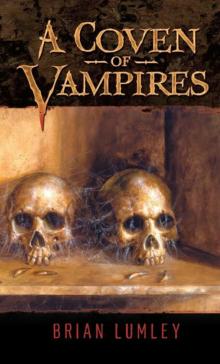 A Coven of Vampires
A Coven of Vampires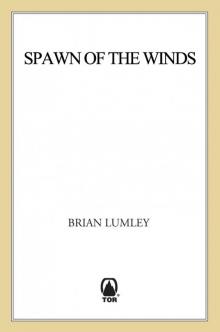 Spawn of the Winds
Spawn of the Winds Sorcery in Shad
Sorcery in Shad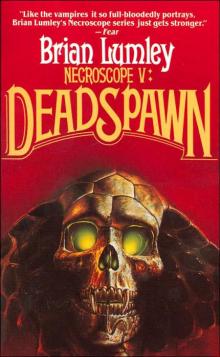 Deadspawn
Deadspawn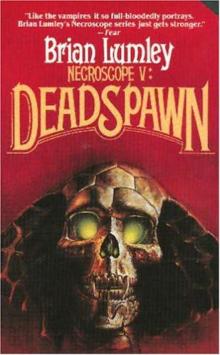 Necroscope V: Deadspawn n-5
Necroscope V: Deadspawn n-5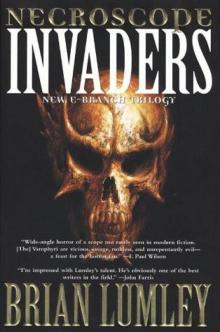 Necroscope: Invaders e-1
Necroscope: Invaders e-1![Beneath the Moors and Darker Places [SSC] Read online](http://i1.bookreadfree.com/i/03/20/beneath_the_moors_and_darker_places_ssc_preview.jpg) Beneath the Moors and Darker Places [SSC]
Beneath the Moors and Darker Places [SSC]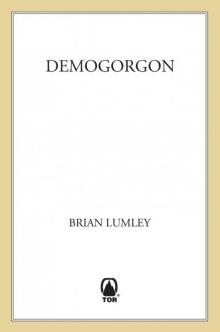 Demogorgon
Demogorgon Harry and the Pirates_and Other Tales from the Lost Years
Harry and the Pirates_and Other Tales from the Lost Years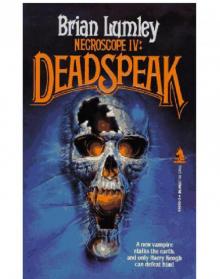 Necroscope IV: Deadspeak n-4
Necroscope IV: Deadspeak n-4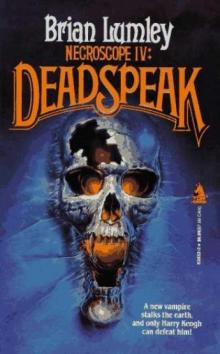 Deadspeak
Deadspeak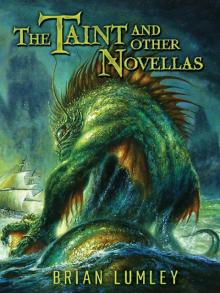 The Taint and Other Novellas
The Taint and Other Novellas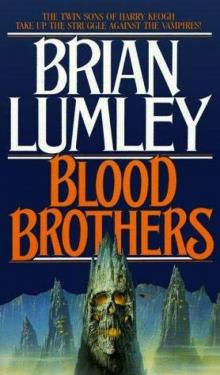 Blood Brothers vw-1
Blood Brothers vw-1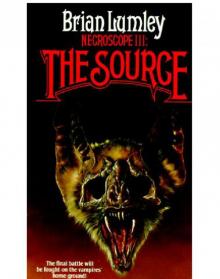 The Source n-3
The Source n-3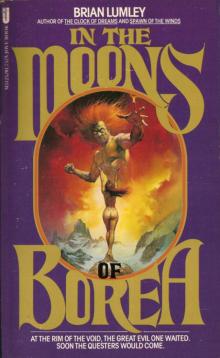 In the Moons of Borea
In the Moons of Borea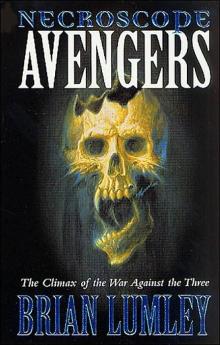 Avengers
Avengers Necroscope n-1
Necroscope n-1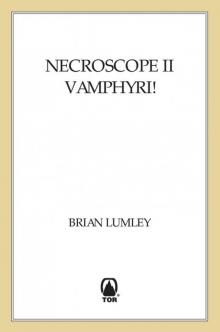 Vamphyri!
Vamphyri! Questers for Kuranes: Two Tales of Hero and Eldin
Questers for Kuranes: Two Tales of Hero and Eldin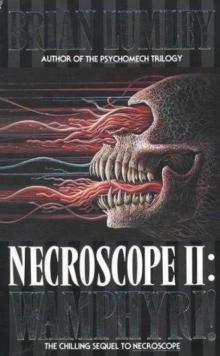 Necroscope II: Wamphyri! n-2
Necroscope II: Wamphyri! n-2 The Source
The Source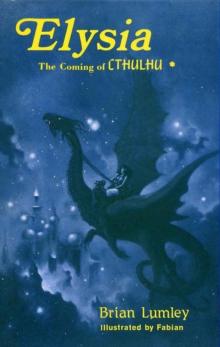 Elysia
Elysia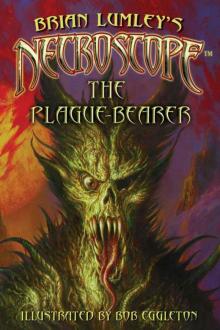 The Plague-Bearer
The Plague-Bearer The Touch
The Touch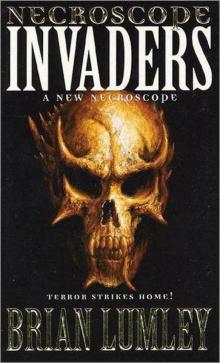 Invaders
Invaders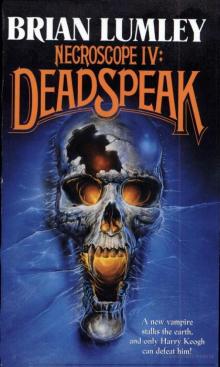 Necroscope 4: Deadspeak
Necroscope 4: Deadspeak Compleat Crow
Compleat Crow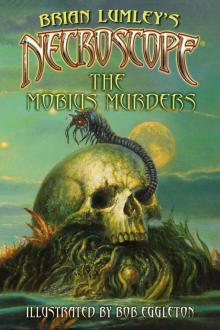 The Mobius Murders
The Mobius Murders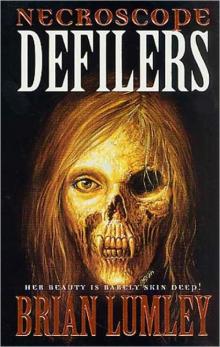 Defilers
Defilers